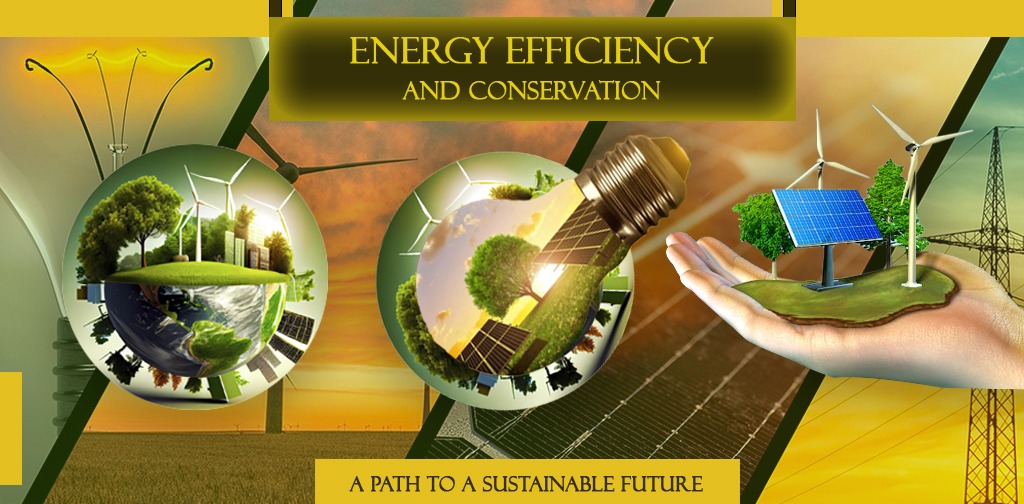Introduction:
In the modern world
where consciousness of the environment, and the call for green living, pops up
on every mouth, energy conservation cog is a highlight of the wheel of life.
Guinness Press has focused on researching and educating people on practices that
would lead to environmental conservation. This blog focuses on the concepts of
energy efficiency and energy saving: the major approaches, the advantages one
gets or a community gets from the processes.
Overveiw of Energy
Efficiency and Conservation
Energy efficiency is
defined as the ability or capability to carry out the same activities using
less energy. This can be done by keying on such things as; utilization of
superior technologies, efficient methods, and enhanced energy usage practices.
Energy Conservation is
where the total of the energy used decreases in comparison to earlier rates or
the energy waste is minimized. There are the following kinds of practices that
are used in the framework of a conservation model: behavioral changes and practices
which can be easily introduced in the daily life.
Energy efficiency and
conservation are important thus the following questions to be answered.
1. Reducing Greenhouse
Gas Emissions: The generation of energy especially from fossil has negative impacts
since it is a major source of green.
house gas emissions.
These emissions can thus be greatly mitigated and the effects of climate change
counteracted whenever efforts are made towards enhancement of the efficiency
and conservation of energy.
2. Lowering Energy
Costs: Energy conservation and efficiency results in many benefits among them
being the reduction of expenses within households, businesses and government.
Less energy used results in less expenditure on the expenses like electricity,
water, and other overhead charges.
3. Enhancing Energy
Security: Therefore, reduction in the reliance on imported energy and the
optimization of the domestic energy consumption increases energy security. It
also helps to avoid such risks as supply disruptions in the sphere of energy.
4. Preserving Natural
Resources: Energy efficiency and conservation therefore minimizes the need for
the commodities mainly; coal, oil and natural gas. This serves to conserve
these scarce resources for the up coming generations to use when they come into
power.
5. Promoting
Sustainable Development: Conservation of energy and its utilization is one of
the paramount parts of sustainable development. They help spur economic
development while having less carry-over negative effects on the physical world
and society.
Strategies for Energy Efficiency
1. Upgrading to
Energy-Efficient Appliances: Energy use can be cut down if condemned appliances
are swapped with their efficient models that have this certification.
Appliances that are energy efficient means that these use less electricity
meaning cheaper bills are incurred.
2. Improving Home
Insulation: Mostly insulation in the exterior of the walls, roofs and floors
was recognized to contradict changes in outdoor temperature. This results in
less energy expenditure while at the same time improving the comfort of the
building.
3. Using LED Lighting:
Standard LEDs consume about a fourth the energy of incandescents, and have an
even longer lifespan than that. Replacing lighting with LED is an easy solution
to the problem of energy efficiency.
4. Implementing Smart
Technologies: Lighting devices, HVAC controls including smart thermostats, and
electric energy management help regulate consumption and use by turning on/off
following human traffic and usage. These technologies offer more options and
customization in terms of controlling the energy use.
5. Conducting Energy
Audits: A typical energy audit ought to vary regularly to analyze where energy
is being produced and how it can be better used. Energy audits, for homes,
businesses, and industrial facilities can be conducted in order to improve
energy efficiency.
Strategies for Energy
Conservation
1. Adopting
Sustainable Practices: Adapting to minor practices including switching off
lights when not required, removing connections of devices that are not in use
and general use of natural light can reduce large amounts of energy
consumption.
2. Promoting
Carpooling and Public Transportation: The usage of single-occupancy vehicles
contribute to consumption of fuel and emissions of Green House Gases hence
their reduction. Riding together, cycling, tripping, and applying use of public
transport are methods of conservation.
3. Encouraging
Renewable Energy Use: There are numerous benefits namely; The inclusion of the
renewable energy for instance the solar, wind and hydro power systems has cut
down the proportion of the energy that is supplied through the fossil based
energy. For instance, putting up solar panels enables domestic users to produce
their clean energy.
4. Supporting Energy-Efficient Building Design: Ecological
techniques of construction like the utilization of eco-friendly raw materials,
designing structures for natural ventilations, using energy efficient systems
all lead to reduced energy usage and thus a reducedimpact on the environment.
5. Educating and
Raising Awareness: Awareness rais negligent and community endeavours aimed at
spreading the word on energy saving and optimisation can foster overarching
actions. Awareness campaigns increase citizens’ sensitivity about the
advantages and necessity of utilizing sustainable energy.
Policy and Legislation
Both legal instruments
at government level and energy efficiency legislation impact greatly the
promotion on energy efficiency and conservation. Some are Monetary incentive
that include tax credits, rebates or grants that help in persuading individuals
to opt for energy efficient equipment viz; appliances and systems.
Discriminatory receptacles guarantee that new constructions as well as
conversions fulfill specific efficiency requirements, while energy codes do the
same for current constructions. International treaties along with national
obligations to limit the quantity of emitted carbon also contribute to the
advancement of sustainable consumption of energy all over the world.
Conclusion
Energy efficiency and
conservation are important approaches to the construction of the sustainable
future. The usage of better technologies along with the change in our behavior
concerning the environment and supporting the favourable policies regarding the
environmental sustainability the overall environmental load can be successfully
reduced, the energy costs will be minimised and eventually, the quality of life
will be improved. At Guinness Press we embrace and foster scholarship and
finding aimed at helping this world moves towards a greener environment.
